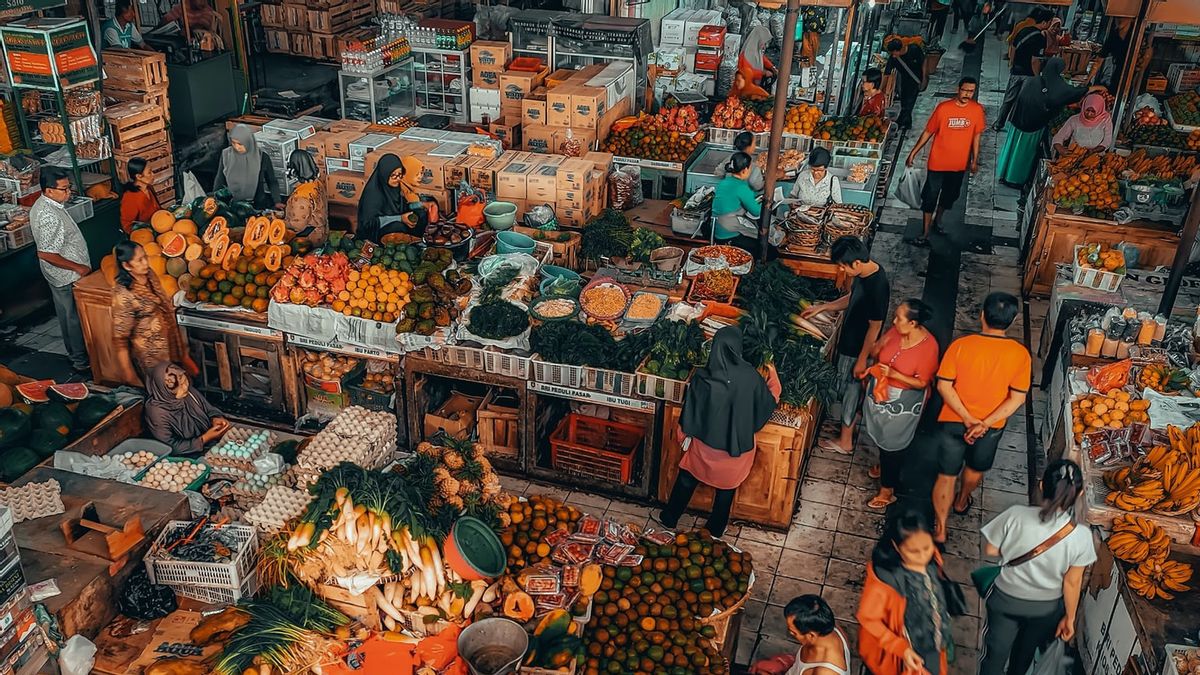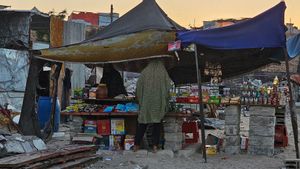JAKARTA - The Business Competition Supervisory Commission (KPPU) reported an increase in the price of several staple foodstuffs at the beginning of Ramadan 2021. This report is based on monitoring food commodity prices during the first quarter or January to April period, throughout Indonesia, which is divided into 6 working areas.
KPPU Deputy for Studies and Advocacy, Taufik Ariyanto, said that the increase in staple food has occurred in almost all provinces in the country which are divided into six regional offices.
Taufik revealed several commodities experiencing price fluctuations. For example, in Regional Offices I, which cover North Sumatra, West Sumatra, Aceh, and Riau, staples such as beef, chilies, shallots, and garlic have increased.
"But the significant thing is beef and chili where the increase is close to 16 percent", he said in a virtual press conference, Friday, April 16.
Then, said Taufik, at Regional Office II which includes Lampung and South Sumatra, commodity prices are relatively stable including those for chilies, chicken meat, and chicken eggs. Meanwhile, in Regional Office III, price increases occurred in the range of 10 to 15 percent, especially for chicken meat, chicken eggs, and beef.
Meanwhile, in Regional Offices IV covering the regions of East Java, Central Java, Bali, NTT, and NTB, chicken meat has experienced a significant price increase of nearly 30 percent.
"For the Regional Office V in the Kalimantan region, the data submitted is relatively stable. Except for the commodity of all kinds of chilies, dry chilies, cayenne pepper, and all kinds, it has increased to nearly 20 percent", he said.
Then, in Regional Office VI for Sulawesi, Maluku, and Papua, it is almost the same as other regions. Taufik said commodities with a significant increase of between 11 and 25 percent occurred in chicken meat, chicken eggs, and shallots.
Furthermore, Taufik said, price increases for chicken, beef, chicken eggs, and chilies in several regions were caused by various factors. For example, for chilies, the price increase is influenced by less than optimal yields due to weather factors.
Not only that said Taufik, but there are also logistical constraints, namely, supply constraints to enter the market due to flood and weather problems. Also, the length of the distribution process affects the price of basic commodities from breeders or farmers to consumers.
"Then there is the distribution channel factor that is still lined or long, from farmers to markets to consumers", he explained.
The English, Chinese, Japanese, Arabic, and French versions are automatically generated by the AI. So there may still be inaccuracies in translating, please always see Indonesian as our main language. (system supported by DigitalSiber.id)













